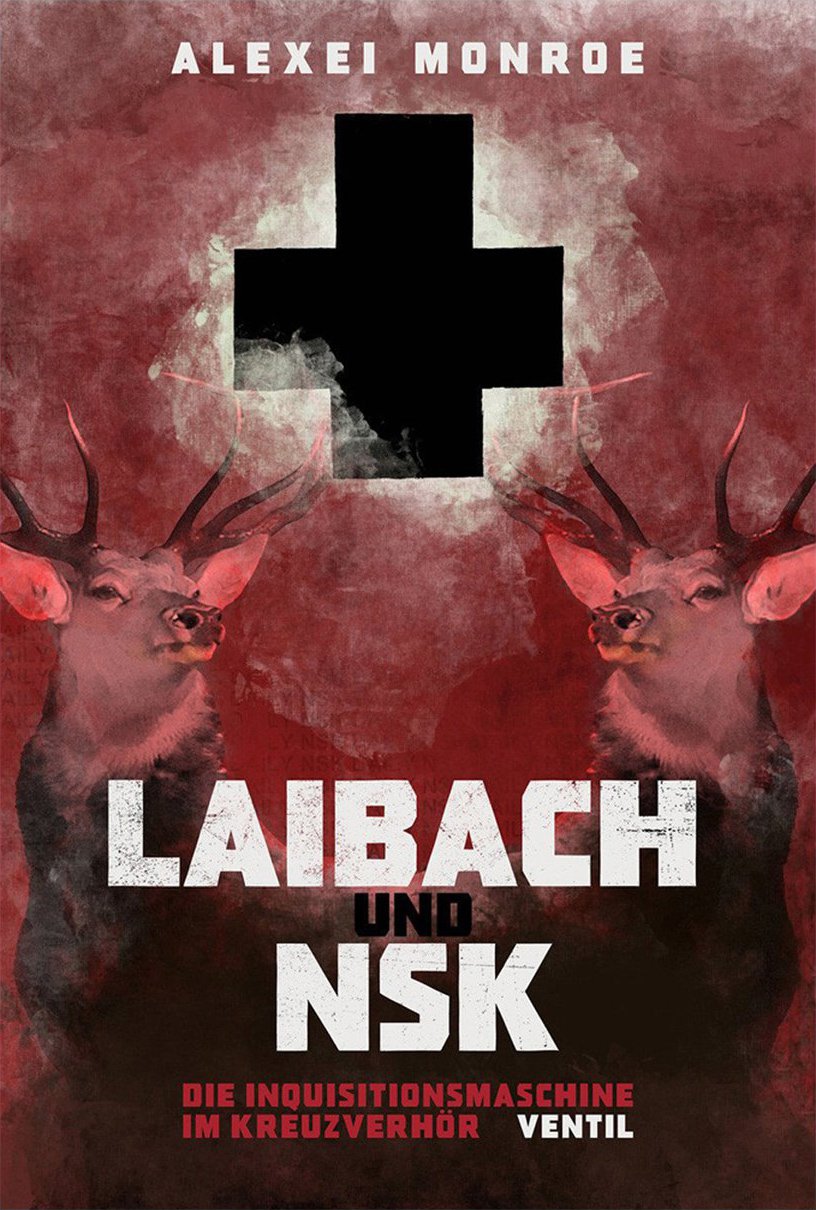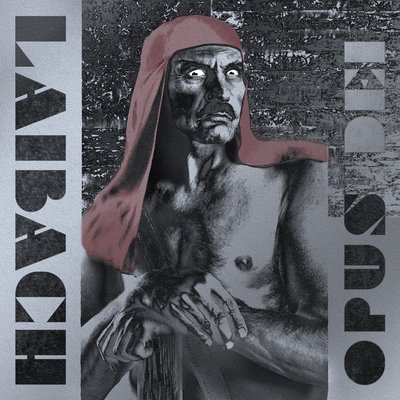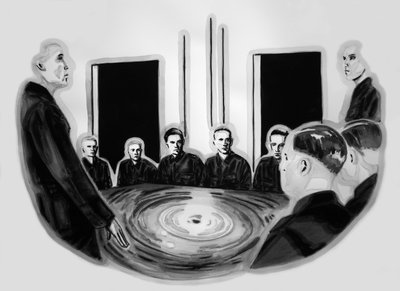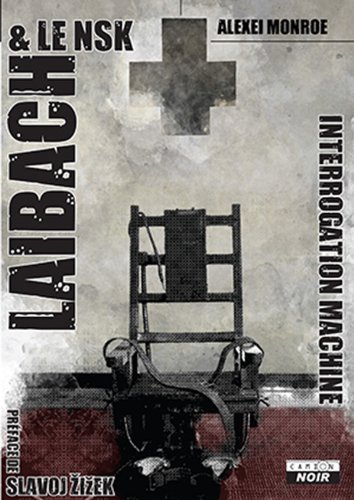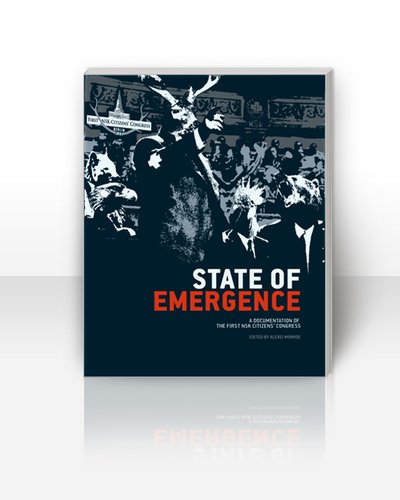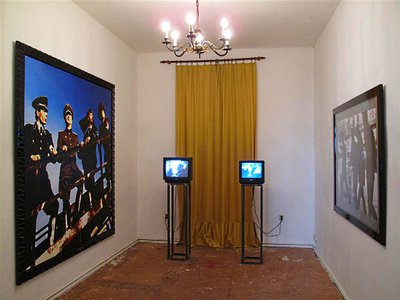After almost four years of planning, writing and editing, a totally updated and extended German version of Alexei Monroe’s book on Laibach and NSK will be released by Ventil Verlag this March. “Laibach & NSK – Die Inquisitionsmaschine im Kreuzverhör” includes material covering Laibach & NSK-related activities since the publication of the English 2005 edition with new photographs, contents and an extensive chronology not featured in the original book.
In the new edition, Alexei Monroe discusses the past and future of the Slovene artistic groups that joined together as Neue Slowenische Kunst, making a huge impact locally and worldwide. Starting with the creation of the group Laibach in 1980, the book analyses the work of all the groups involved in the artistic movement that became a state. The book analyses not only the internal logics and actions of these groups, but also the complex political and cultural context within which they have operated. It illuminates the paradoxes, perplexities, and traumas of NSK’s work at its deepest levels. Its investigation of the relationships between conceptual content, stylistic method, and ideological subtext demonstrates the relevance of NSK in general and Laibach in particular to current debates about culture, power, war, politics, globalization, the marketplace, and life itself. It uses a variety of theoretical and historical approaches, as is appropriate to the shifting and elusive nature of his subject. The use of theory reflects NSK’s own theoretical engagement; it is also a valuable way to read the issues raised by the work. Neither oversimplifying nor uncritically mystifying, the book leaves intact the “gaps, contradictions, and shadows” inherent in his subject, demonstrating that “it should still be possible to appreciate the work as art that moves, confuses, agitates, or fascinates.”
“Das Buch ist aber auch eine perfekte Darstellung der anekdotenreichen Geschichte der Band und in seiner Materialfülle unverzichtbare Quelle für Kunsthistoriker, die über Neue Slowenische Kunst (NSK) arbeiten wollen.”
– Daniel Völzke, Monopol-magazin.de
Laibach und NSK: für viele die letzte Avantgarde des 20. Jahrhunderts, sicherlich aber die spannendste künstlerische Artikulation Osteuropas. Laibach traten unmittelbar nach dem Tod Titos Anfang der 1980er in der damaligen jugoslawischen Teilrepublik Slowenien auf den Plan. Auf skandalöse Auftritte folgte die Firmierung als Künstlerkollektiv Neue Slowenische Kunst (NSK), das sich neben der Musik u.a. dem Theater, der Philosophie, der Malerei und dem Design widmete. Während Laibach mit ihren eigenwilligen Coverversionen bekannter Songs die Auflösung Jugoslawiens wie des Ostblocks und die Zurichtung der Welt zum Marktplatz kommentierten und internationale Erfolge sowohl im Pop- als auch im Kunstkontext feierten, reflektierte NSK auf der Basis provokanter Ästhetik das politische und kulturelle Chaos dieses Umbruchprozesses quer durch alle Disziplinen.
“Heute sind Laibachs Lektionen zweckdienlicher denn je.”
– Slavoj Žižek
